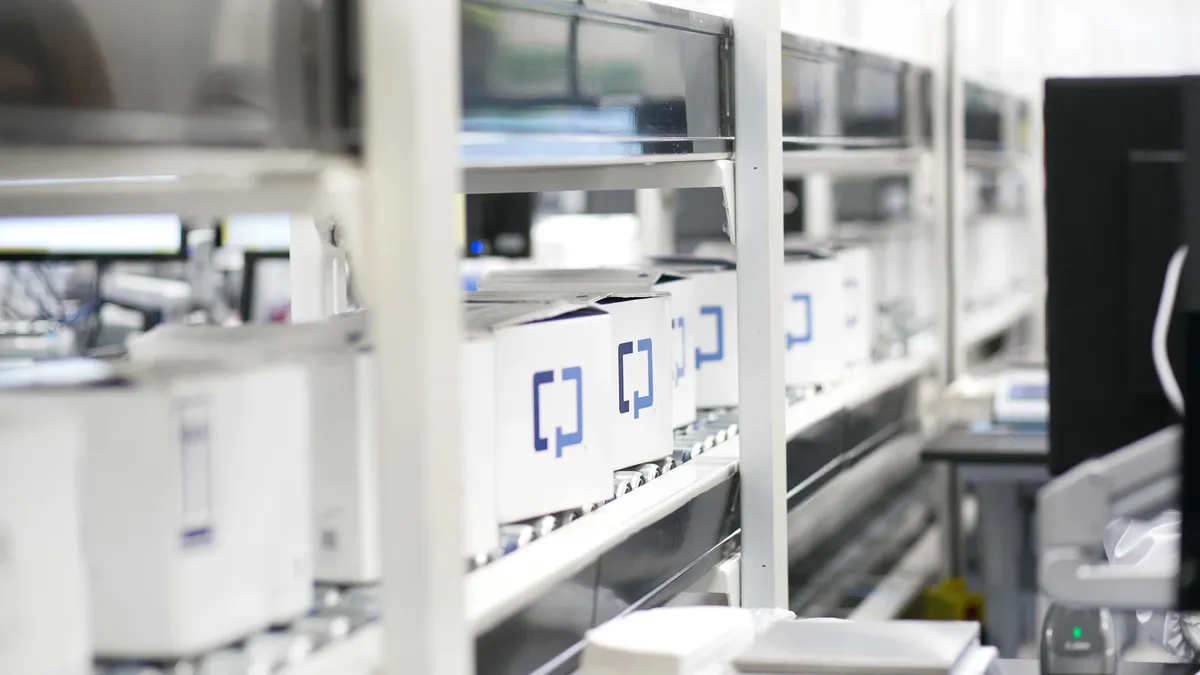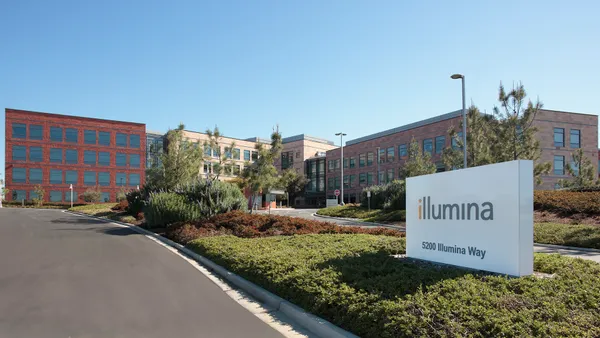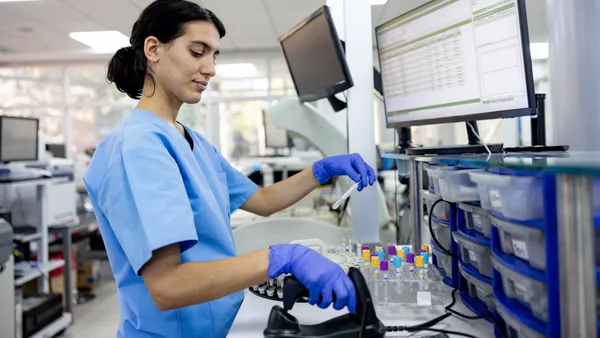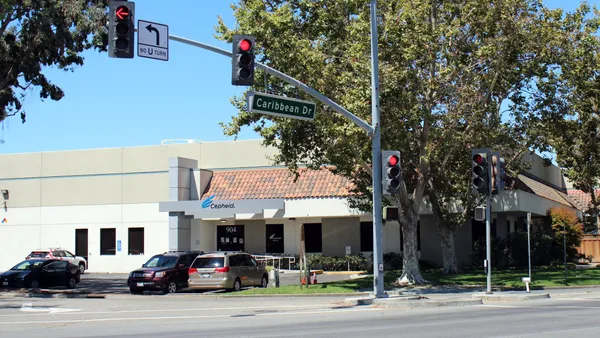Dive Brief:
- Exact Sciences said Monday that FDA approved its stool DNA-based colorectal cancer screening test, Cologuard, in average-risk people ages 45 and older, widening the population from its existing indication for people ages 50 and older.
- The label expansion comes earlier than anticipated. Exact Sciences CEO Kevin Conroy said in July the company expected the change, which it believes adds 19 million Americans to its target market, to come through sometime in the first half of 2020.
- "We would note that Cologuard has done particularly well at the younger end of the [colorectal cancer] screening population," analysts at Cowen wrote in a note to investors Monday, also projecting that the new age sector could represent an incremental $3.2 billion in annual market potential. "This suggests that [Exact Sciences] may disproportionately benefit from a younger initial screening age, and it could potentially increase the number of times an individual could be tested with Cologuard over his/her lifetime."
Dive Insight:
Exact Sciences said the timing of the lowered age indication is apt, given rising incidence of colorectal cancer in younger people. An analysis of colorectal cancer diagnoses between 2004 and 2015, conducted by researchers at the University of Texas at Austin using the U.S. National Cancer Database, found that the proportion of people diagnosed with the cancer below age 50 has continued to increase over the last decade, and younger adults present with more advanced forms of the disease.
"As research progresses, we must offer screening options to people that may already have or will develop colorectal cancer and pre-cancers, aiming to increase screening rates and halt the rise of colorectal cancer in younger Americans," Mayo Clinic gastroenterologist and Exact Sciences Chief Medical Officer Paul Limburg said in the announcement.
Cologuard won premarket approval in 2014 and about 3 million people have used the test since. A sales partnership with Pfizer has helped expand the product's reach, with use of the test reportedly growing 93% last quarter, helping Exact achieve approximately $200 million in revenue.
The younger age group indication will align Cologuard's marketing with American Cancer Society screening recommendations, updated to reflect the lower age group last May. In March, Aetna became the first major payer to lower its recommended screening age, the Cowen analysts noted. They added the speedy FDA approval of the new age group "should position the company well" for inclusion in the next U.S. Preventive Services Task Force review.
Exact Sciences' success has helped the company set its sights beyond Cologuard into liquid biopsies for numerous other cancers, with liver cancer being its foremost target. The company also announced in July it was buying Genomic Health, expanding its cancer detection capabilities in breast and prostate cancers.
But the company recently faced a few headwinds. Exact Sciences' stock fell 10% on the surfacing of a CMS-sanctioned study published early this month that concluded that compared to other colorectal cancer screening options reimbursed by the agency, Cologuard is "less effective and considerably more costly, making it an inefficient screening option."
And competitors are looking to bring their own non-invasive colorectal tests to market. Earlier this month, Prescient Metabiomics said it received FDA's breakthrough device designation for a test that identifies microbiome changes indicative of precancerous polyps and early stage carcinomas.
Exact Sciences' stock was up more than 8% in early trading Monday morning.











